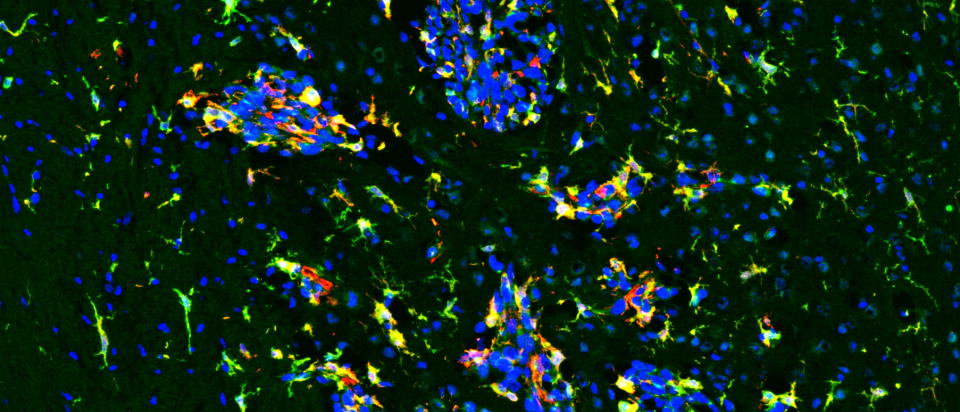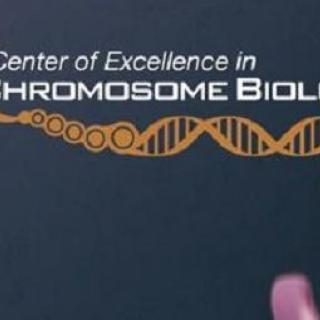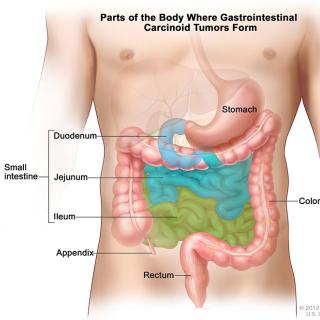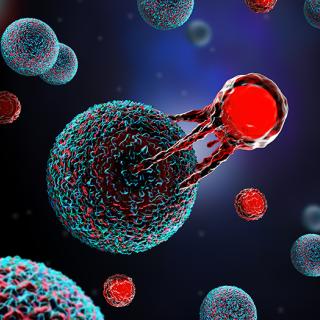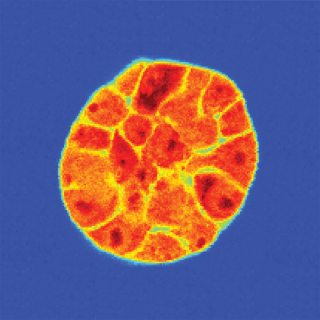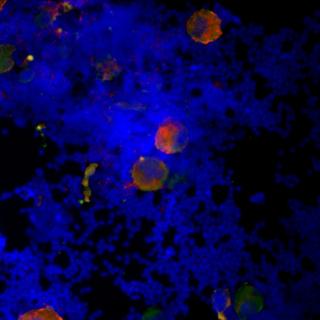News and Events
New Strategy Shows Promise Against Deadly Breast Cancer in the Brain
A new NIH study points to a promising strategy for treating aggressive breast cancer that spreads to the brain, a complication with few effective options. Learn how blocking a key brain cell survival pathway could open the door to future therapies.
Read MoreBiology & Biophysics of the Nucleus Symposium - October 20-21, 2022
The mission of the Center of Excellence in Chromosome Biology (CECB) is to achieve a comprehensive understanding of the mechanisms involved in chromosome function, how aberrations in chromosomes and chromatin lead to disease and how these defects can be corrected.
Towards achieving the mission, the Biology & Biophysics of the Nucleus Symposium brings together scientists in the fields of chromatin and chromosome biology, with the focus on stem cells, cell development, aging and cancer.
We hope this symposium offers you an opportunity to learn more about the current status of chromosome structure and function in development and disease, to share your research and to discuss the use and implications of these advances for clinical applications.
Organized by: Shalini Oberdoerffer, Ph.D., Gordon Hager, Ph.D., and Dave Levens, M.D., Ph.D.
Read MoreClinical trial researching therapy for bile duct cancer
A clinical trial led by Jonathan Hernandez, M.D., Investigator in the Surgical Oncology Program, is researching a combination of immunotherapy and chemotherapy for liver-only cholangiocarcinoma.
Read MoreClinical trial evaluates drug combination for inoperable neuroendocrine tumors
Neuroendocrine tumors occur in cells of the endocrine and nervous systems. A combined phase I/II clinical trial at the NIH Clinical Center evaluates the effectiveness of a combination of two agents that may work in complementary ways to target inoperable or metastatic neuroendocrine tumors.
Read MoreClinical trial researching T-cell therapy for sarcoma
John W. Glod, M.D., Ph.D., Associate Research Physician in the Pediatric Oncology Branch, is leading NCI’s participation in a clinical trial researching T-cell therapy for sarcomas.
Read MoreT-cell imbalance can impact immunotherapy outcomes
The rapid growth of a patient’s cancer following immune checkpoint inhibitor therapy, known as hyperprogressive disease, is an unexpected treatment outcome that is challenging to predict or study. New results show that a T-cell imbalance in the tumor microenvironment can trigger the condition.
Read MoreMapping cells’ mechanical properties for insight into metastasis
A new approach allows researchers to investigate cells’ mechanical properties in tissue-like environments.
Read MoreClinical trial researching therapy for tumors that have spread to the lining of the abdomen
A clinical trial led by Andrew M. Blakely, M.D., Assistant Research Physician in the Surgical Oncology Program, is researching a combination drug therapy for peritoneal carcinomatosis, a condition in which tumors have spread along the lining of the abdomen from the appendix, colon, ovary or mesothelioma.
Read MoreClinical trial researches drug therapy for bone marrow neoplasms
A clinical trial led by Steven Z. Pavletic, M.D., Senior Clinician in the Immune Deficiency Cellular Therapy Program, is researching a therapy for myelodysplastic syndromes (MDS), a group of bone marrow neoplasms.
Read MoreLiver cancer may unexpectedly be influenced by platelets
Platelets have long been associated with more aggressive cancers; however, new results show that these cell fragments release molecules with anti-tumor properties against liver cancer, reducing tumor burden in mice. The results provide detailed insights into the mysterious role of platelets in cancer progression.
Read MoreClinical trial researching therapy for prostate cancer
A clinical trial led by Ravi A. Madan, M.D., Senior Clinician in the Genitourinary Malignancies Branch, is researching a combination drug therapy for prostate cancer.
Read More